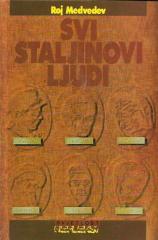
Povijest knjige
The History of the Book is an encyclopedic work that traces the development of the book from the earliest forms of writing to the modern era. The book explores the cultural, technological, and social evolution of the book as a medium of knowledge, art, an
Aleksandar Stipčević's History of the Book is an encyclopedic work that traces the development of the book from the earliest forms of writing to the modern era. The book explores the cultural, technological and social evolution of the book as a medium of knowledge, art and communication.
Stipčević begins with the beginnings of writing in Mesopotamia, Egypt and China, describing clay tablets, papyrus and parchment as the first materials. He discusses in detail ancient libraries, such as the one in Alexandria, and the role of the book in Greco-Roman culture. The Middle Ages brought codices, monastic copy workshops and the development of illuminated manuscripts, along with the influence of the church on the spread of literacy.
With the invention of the printing press by Johannes Gutenberg in the 15th century, Stipčević emphasizes the revolution in book production, the democratization of knowledge and the spread of printing in Europe. He also discusses the role of the book in the Reformation, the Renaissance and the Enlightenment, and its impact on social change. In more recent times, he deals with the industrialization of printing, the emergence of mass editions and the digital transition of the book.
The work is distinguished by its scientific thoroughness, but also by its accessibility, combining historical facts with cultural context. Stipčević emphasizes the book as a key element of civilizational progress, exploring its role in education, politics, and art. Special attention is paid to the Croatian literary tradition and the Glagolitic script.
One copy is available






